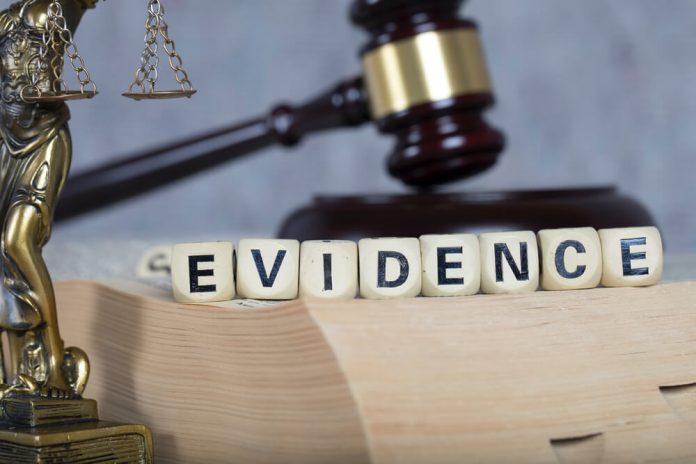This article has been written by Rishbha Rishu, pursuing a Diploma in Advanced Contract Drafting, Negotiation and Dispute Resolution and has been edited by Oishika Banerji (Team Lawsikho).
It has been published by Rachit Garg.
Table of Contents
Introduction
The term ‘evidence’ has been derived from the Latin word, ‘Evident’ or ‘Evidere’, which means to show clearly, to discover, to ascertain or to prove. The Indian Evidence Act,1872 deals with circumstantial facts, figures, data, communication, etc which are used to be placed in court before the judge so that justice can be delivered effectively. Planted evidence is the type of evidence that has been changed, or established at a scene, to make it appear as related to the accused party. For example, samples of blood or saliva can be planted at crime scenes, leading to the innocent being wrongly convicted and the guilty to be acquitted. Ideally, planted evidence is not admissible in many courts. There are many such aspects that are related to this type of evidence which we can know by means of this article.
Planted evidence
According to Prof. Melissa Hilpert, “planted evidence is an item or information which has been moved, or planted at a scene, to seem related to the accused party, is not admissible in many courts, including U.S. criminal courts.” Planting evidence is considered to be a serious offence which includes a criminal sentence of 6 months in Los Angeles and $1,000 as fine. There are many factors which act as the root cause of planted evidence. Some of these are:
a. Misidentification by eye witness
b. Jealousy / grudge etc.
c. Police misconduct
d. False confession- under threat/ violence/ pressure/ kidnapping etc.
e. Poor defence lawyer
f. Prosecutor misconduct
g. Political factors
h. Misrepresentation /fraudulent forensic report
i. Economic condition
j. Drunkenness
According to a survey, planted evidence cases are now increasing on a daily basis as in the United States, around 75% of DNA exoneration cases are the consequence of such evidence. This has led to distrust towards law and order in society, decline of humanity alongside decline of trust and faith. In India, planted evidence cases have been increasing day by day. Another survey has revealed that in 30% of cases, the conviction of an individual has been decided on the grounds that they are either socially of a lower status or not economically sound or orphan, disabled, etc, so that the convicted individual takes the false blame out of fear of living. A typical example of prejudicing personal liberty by means of planted evidence is a case in the United States, where it was the misconduct of the police official that resulted in the death of two teenagers. The police official was involved in planting evidence of drugs and weapons, thereby killing the teenagers by shooting them down. The prosecutor was successful in defending the teenagers, thereby availing justice for their death, as the court of law was ignorant of the planted evidence. But, whether misrepresentation and fraudulent forensic reports can make room for attaining justice in a deceitful manner, remains open.
When do people plant evidence
It is necessary to note that a criminal may plant evidence on you in either of the mentioned cases:
- If you happened to be at the place of crime.
- If they are well-versed with the fact that even after they wrongly frame you, they can easily get away with the same.
- They may even presume the fact that you are willing to take the fall of their wrongdoings.
It is necessary for you to fight back quickly, as people generally plant evidence right after they have committed the offence to get rid of the same. For example, if an individual has stolen a property they might try to hide the same at your place, if abiding by the afore-mentioned grounds, thus blaming you for the same. Things may also be in such a way that they ask for keeping something on your premises without letting you know the source, thereby making you fall in trouble subsequently. It is essential for you to not allow such advantages to be taken and if suspicion arises, the same should be reported by you.
How can an attorney help you if the police file charges against you
Put simply, if the investigating officer comes across any evidence that is in relation to you from your premises or belongings, you will be charged for the offence he is investigating. It is always advisable to attend questions of police officials with the aid of the attorney, as manipulation will then have a lesser influence on you. Miscommunication and excess of communication to the police officials can turn things soar for you as the primary goal of the officials is to complete the investigation of the case. It is the role of a criminal defence attorney to prevent the police officer from resting the burden of the crime on you without even being associated with it. They also ensure to guide you in answering questions presented by authorities without letting you get incriminated. This guidance can extend to preparing a statement for both the prosecution and the investigators.
What if an individual convicted of planted evidence have to go through trial
If you have to undergo a trial with regard to a crime you have not committed but have been accused of, the need for a criminal defence attorney stands indispensable. It is always advisable to not confuse a defence attorney with a public defender, for while the role of the former is clear to us, the latter generally fail to provide individual cases to each case approaching him owing to overburden. The general purpose as to why you need an attorney is because your fundamental rights need to be protected even during the trial. Further, the attorney helps you face questions that are directed more towards you in cases of planted evidence, by the prosecution. Hence, the need for presenting a strong defence to prove your innocence in a planted evidence case requires an attorney.
Judicial insight of planted evidence
As we have known the basics of planted evidence, it is now required to know about the judiciary’s take on planted evidence, both domestically and internationally.
Dhapu Devi v. State of Rajasthan (2013)
In this case a false and fabricated report was submitted before the Rajasthan High Court, which was re-analysed by the prosecutor and original forensic report was obtained by detail analysing by the authorities involved. Thus, recognition of planted evidence, impliedly, was denied by the court of law thereby safeguarding the personal liberty of the accused.
Bhima-Koregaon prosecution case (2022)
The Bhima-Koregaon violence dates back to January 2018 and since then it has been over 45-months that the investigation remains ongoing. It is ideal to note that independent forensic experts involved in this case, have raised concerns over evidence being planted in the present case and interestingly, the same has not been taken into account by the courts of law in India. This is why the case requires a mention under our discussed head. It is ideal to note that the stringent criminal process that India remains home to, clearly restricts the right of the accused individuals to present new material before the court of law. This ipso facto remains one of the prime grounds that makes room for planted evidence to deny justice to the falsely framed accuse.
In India, cognizance is the least stern test, which is followed by summoning, charge, and it is only after charge, a trial is said to begin. It is in trial where a case needs to be proved beyond reasonable doubt. At cognizance and summoning, the opportunity to be heard is not given to the accused. A lot of evidence that is related to this ongoing case is digital, and therefore the scope for fabrication is always at an accelerating rate. It has been claimed by the accused as well that malicious software has played a role in fabrication of evidence, thereby planting them against the accused.
Lynette White murder case (1988)
Lynette White was murdered in 1988 and three men were convicted wrongly on the basis of planted evidence. After 2002, with the help of advanced science, DNA test was reconducted and the uncle of the youth whose DNA was matched earlier had confessed of his crime of planting evidence earlier thereby making himself subject to life imprisonment in 2003.
Conclusion
As we come to the end of this article, we can say that planted evidence has disrupted the justice delivery system in society. It is difficult to trust the police officers or prosecutors along with near and dear ones who can backfire us. The accused should try to appoint a lawyer who is professionally qualified and has not been involved in misconduct, only then can justice can be provided to the plant convict.
References
[1] Planted Evidence Law and Legal Definition | USLegal, Inc.
[2] https://www.bworldonline.com/
Students of Lawsikho courses regularly produce writing assignments and work on practical exercises as a part of their coursework and develop themselves in real-life practical skills.
LawSikho has created a telegram group for exchanging legal knowledge, referrals, and various opportunities. You can click on this link and join:
Follow us on Instagram and subscribe to our YouTube channel for more amazing legal content.
 Serato DJ Crack 2025Serato DJ PRO Crack
Serato DJ Crack 2025Serato DJ PRO Crack











 Allow notifications
Allow notifications


